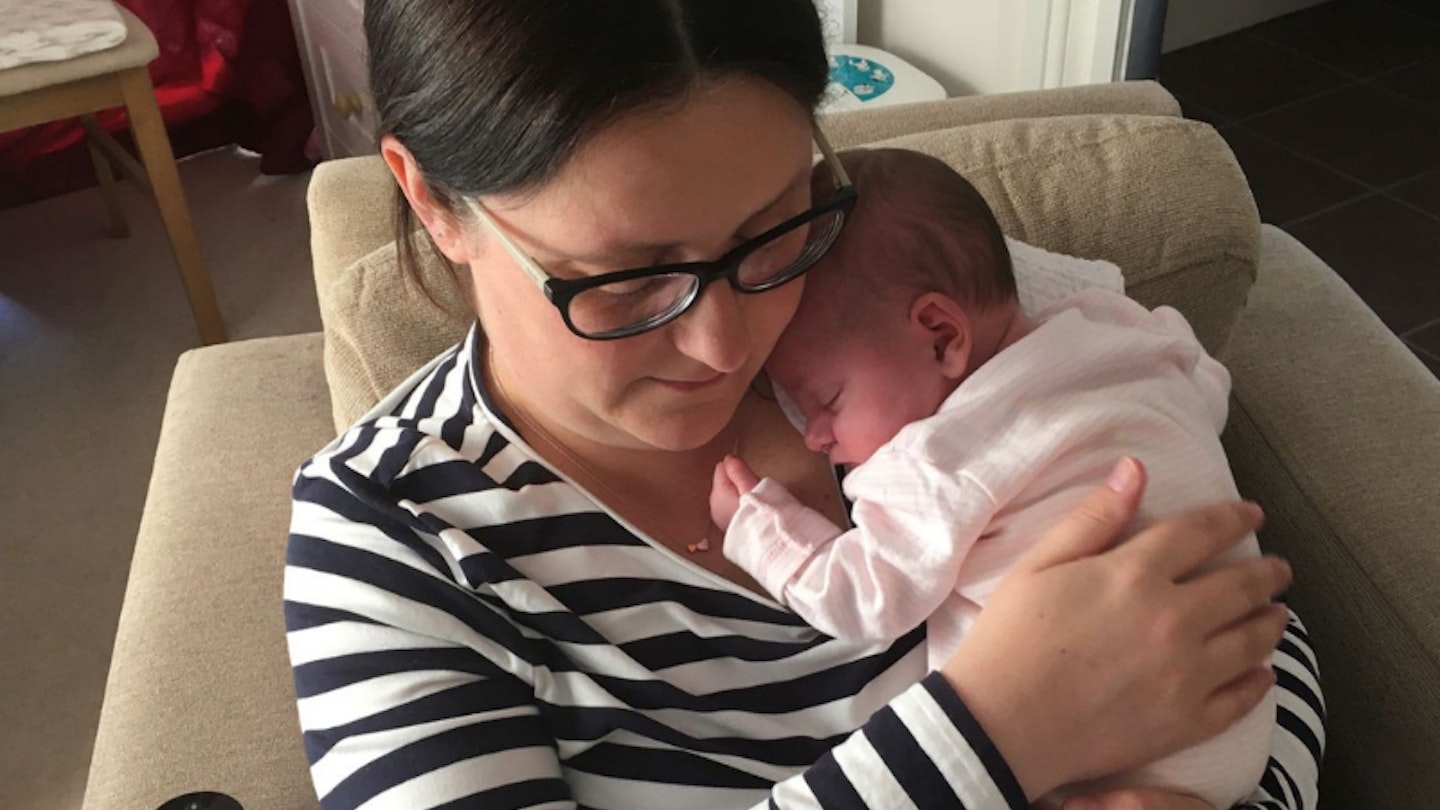Having a baby is never easy. It's a wonderful gift and a magical time for many parents, which comes with its ups and downs. But what is it like to have your first child during a global pandemic, and to suffer from mental health problems as a result?
Emma Hart, from the Pirate FMnews team, went off on maternity leave on the 13th March 2020. Ten days later the country went into a nationwide lockdown because of the coronavirus pandemic. Emma was already self-isolating as pregnant women had been put into the vulnerable category. On the 31st March, her daughter Charlotte was born. But Emma says it wasn't the birth she expected.
"Understandably there were a lot of restrictions in place at the hospital, and this is no criticism of any staff who work there, they were absolutely amazing, but to turn up and find a security guard on the door was the first strange thing in a succession of many that followed.
"I had quite a tough labour, as many women do, and had to be admitted to hospital. My husband Tom couldn't be allowed in at that stage, as I wasn't in established labour, and he had to go home.
"After a very tough labour, Charlotte was born by c-section. But Tom was only allowed to stay for a couple of hours. And everything was changing quickly."
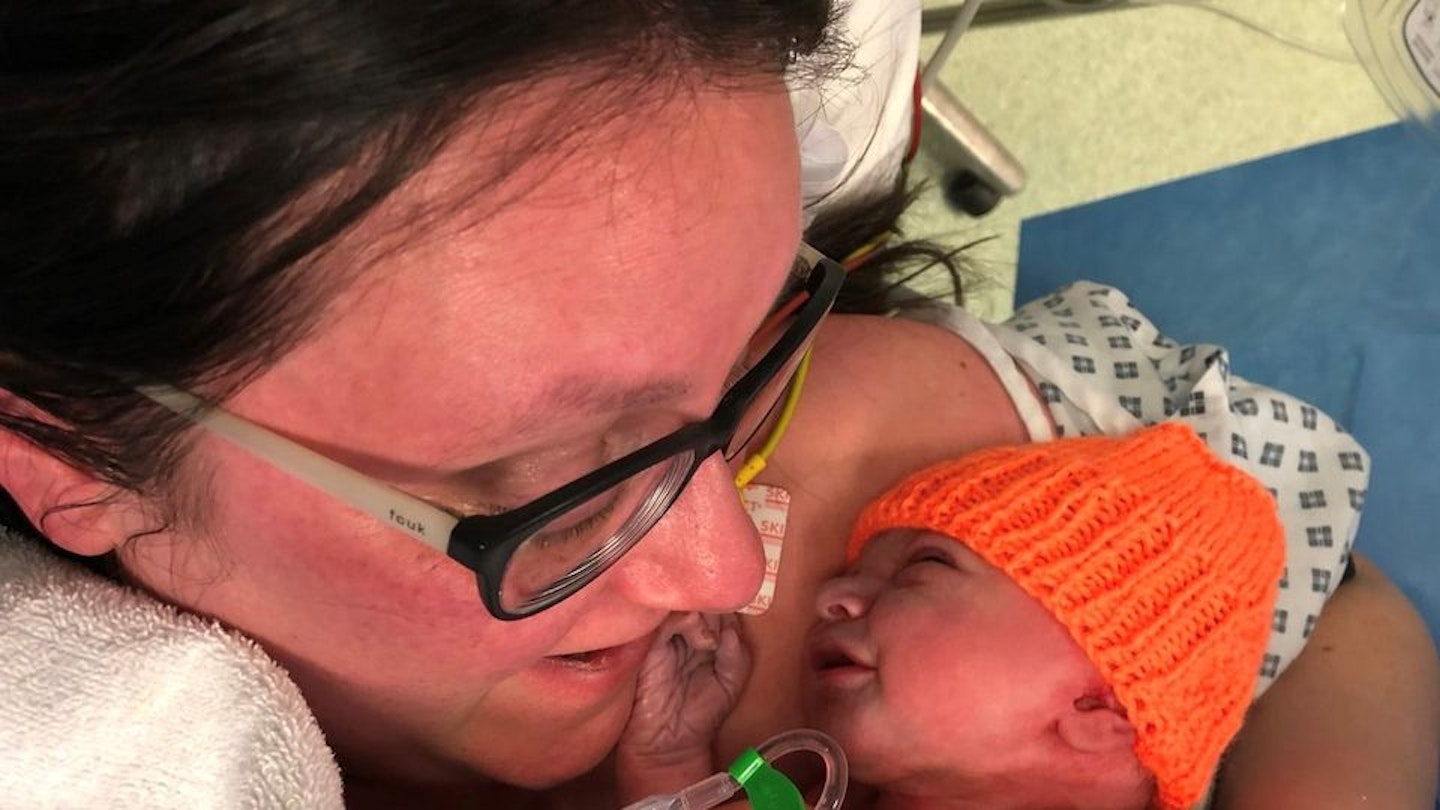
Pressure and postnatal depression
"It wasn't until I got home that things changed for us, as any new parent will know, you're so tired and that is really difficult, you don't get much sleep, you sleep in shifts, and that is really how it began for me.
"I was diagnosed with postnatal depression and anxiety about three or four weeks after Charlotte was born.
"I found it really difficult, I've always considered myself to be a really strong person, but I remember experiencing extreme tiredness and on top of that Charlotte had extremely bad colic and reflux, and was quite poorly, she lost 10 per cent of her birth weight in the first five days.
"Our appointments, we had a couple of face-to-face with the midwife but the majority were over Zoom or the phone, through no fault of their own, support teams weren't able to come to your home as they didn't have PPE, everything had escalated really quickly."
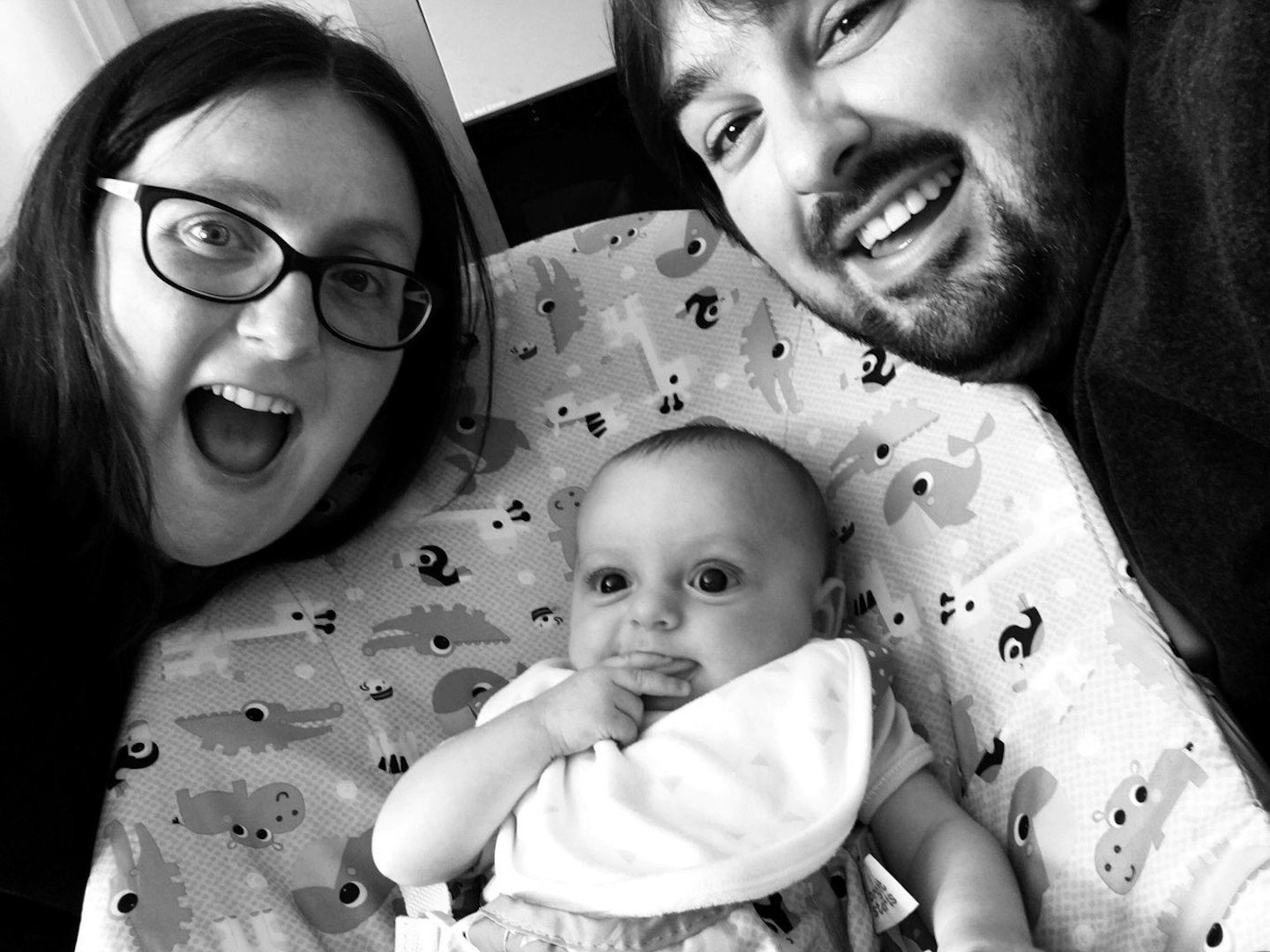
Emma and Tom were very much alone. Her parents don't live in Cornwall and Tom's mum, who works in a supermarket, was working all through the pandemic. They weren't allowed to see their support network during the lockdown.
"I began to put a lot of pressure on myself to make sure she gained weight. I remember several times trying to breastfeed, I would get so upset and sit there in tears watching her not eat, and that's where it all started really for me.
"I'd imagined having a magical bond with Charlotte through breastfeeding, but actually it started to destroy me from the inside out. I wasn't getting the latch positions right and I couldn't have that face-to-face support."
I just wanted to walk out the door, and not come back.
"The day when I realised everything wasn't okay, we'd had a day of particularly bad feeds with Charlotte. I'd watched her crying for about four hours straight and nothing was working, she had really bad colic and we just couldn't ease her pain.
"I was on my own with her in the living room trying everything, I was so frustrated and sat down on my exercise ball and her head banged into my chest, and instantly my head went to all these dark places, 'I've hurt my child, what if I've caused her serious injuries?'
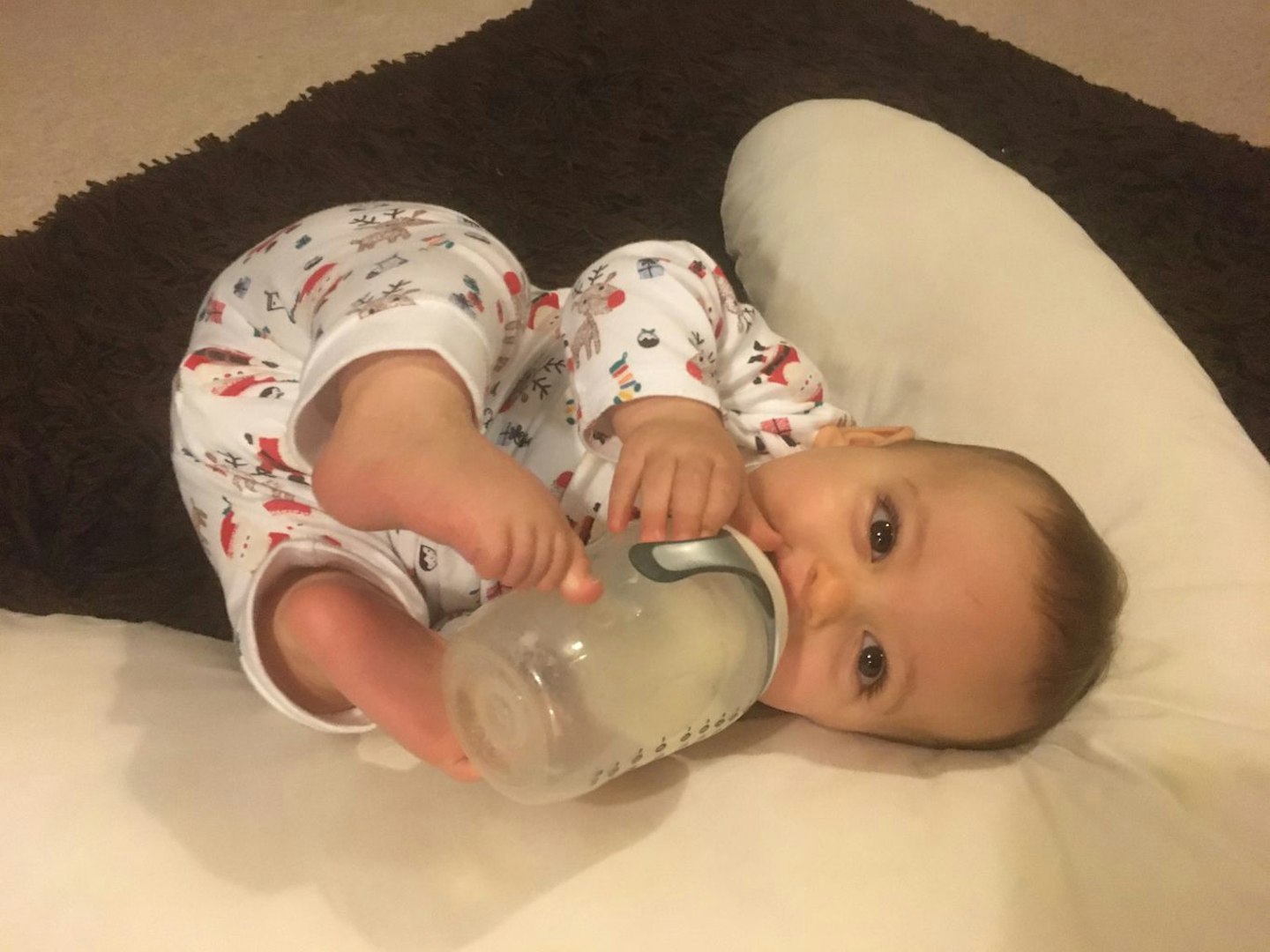
"I just burst into uncontrollable tears, my husband came in and I gave Charlotte to him, and I was sat on my bathroom floor in floods of tears, pulling at my own hair, because I wanted to make myself in as much pain as she was in, and I have never dealt with emotions like that before.
"I just wanted to walk out the door and not come back. And the guilt was horrendous. I love my husband and I love Charlotte, she's our world, I just felt that I was failing as a mum.
"I've always wanted to be a parent, I just sat on my bathroom floor and thought 'this can't be happening to me'."
At that point, Emma and Tom knew that they needed help.
It's a thought that haunts me
Emma's health visitor put her in touch with the perinatal mental health team.
"The two ladies from that team, who I've worked with every week since Charlotte was born, were just amazing. They got everything sorted for us, they enabled me to talk about everything that had happened, even some of those really dark thoughts that you have. Did I sit down on the exercise ball too hard that night on purpose because I was so frustrated I wanted to stop her from crying? Could I have walked away and never come back?
"As hard as it was to go through those thoughts, they stripped it back, took it right back to square one and helped me build it up again. They even gave me a doctor's note to travel to my parent's house, who don't live in Cornwall.
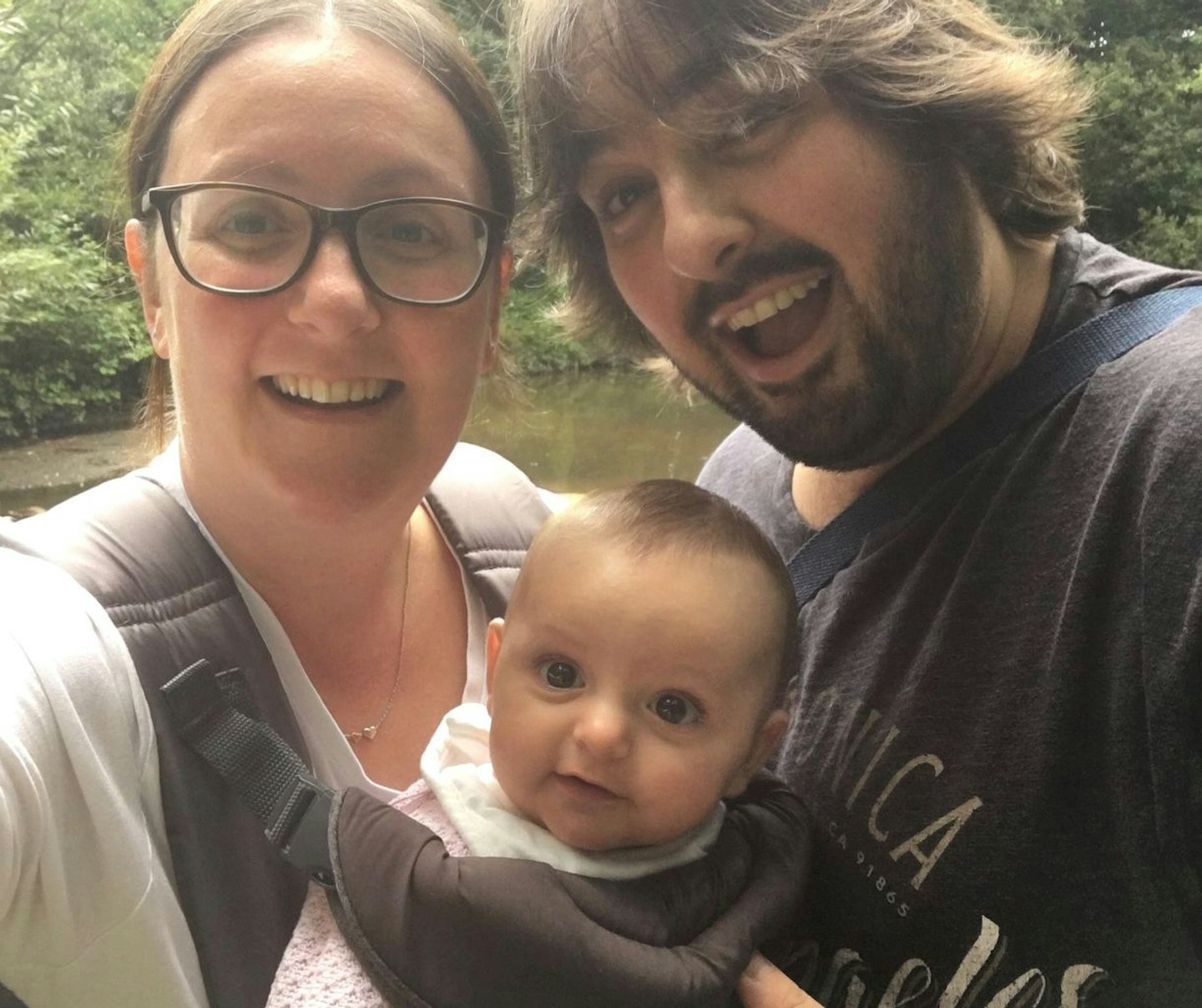
"I stayed there for a couple of months before coming back to Cornwall in the summer, and it's been a really long journey for me.
"But I feel it's important to talk about it, especially as at the end of my maternity leave, as I'm returning to work, we're in the middle of another nationwide lockdown.
"And there will be other families, expectant families, new families, who haven't felt that they can reach out and ask for help, and if after this just one person comes forward and says I need help, then that's what I would like to see.
"I honestly don't know what position I would be in if I hadn't asked for help, and that's a thought that haunts me.
"But it really is okay, not to be okay."
